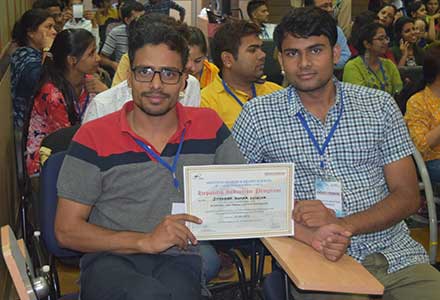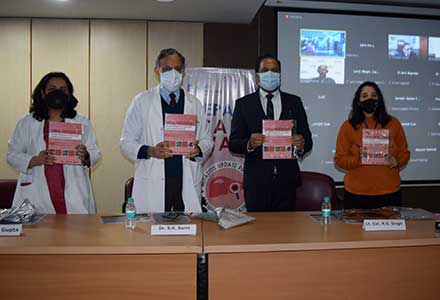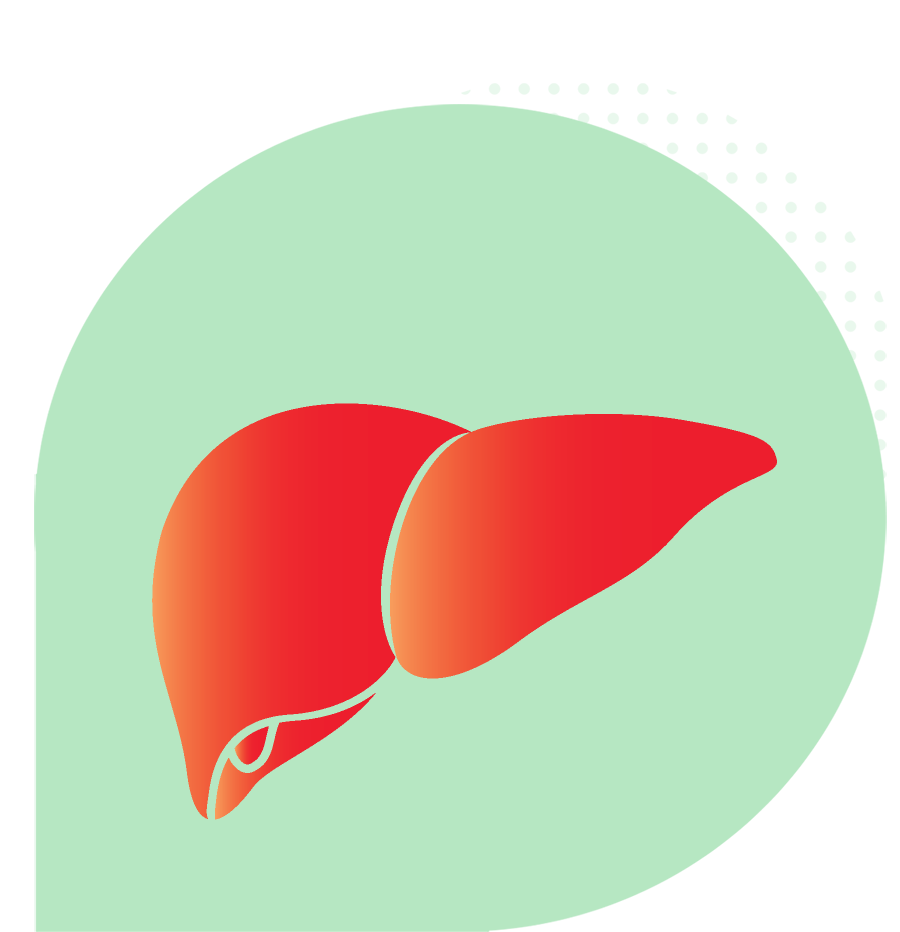Several studies have indicated that the risk of transmission of HBV and HCV is 4 times higher amongst healthcare professionals in comparison to the general public. Every year lakhs of positive cases of nursing acquiring HBV & HCV infection are registered due to percutaneous injuries encountered due to occupational exposures. This happens because nurses are at the forefront of patient management. An uninformed nurse can lead to poor management of HBV & HCV patients and also exposes themselves to occupational exposures through needle stick injury and mishandling of bio-medical waste.
The Hepatitis Induction Program (HIP) is designed to emphasis on updating in-service nurses on all aspects of nursing management of patients with viral hepatitis including major emphasis on universal precaution guidelines for healthcare workers safety for viral hepatitis.
Since, its inception in 2017 the scientific schedule has been updated at regular intervals to ensure up to date information sharing with the participating audiences. More than 7,000 nurses have benefitted from the training program across 25 states and UTs.
The program is conducted in both modes using traditional model of training i.e. face to face and also through virtual program using state of the art tele conferencing set up for e-learning programs.

S. No. | TOPICS | SPEAKERS |
1. | PRAKASH – Introduction Introduction to training program; do’s and don’t in a virtual classroom, completion of pre-& post training assessment. | Ms. Akanksha Bansal, Senior Manager (Projects), ILBS |
2. | Viral Hepatitis A & E Overview, epidemiology, clinical presentation, laboratory diagnosis and prophylaxis of HAV & HEV; prevention and vaccination | Dr. Reshu Agarwal, Associate Professor, Clinical Virology, ILBS |
3. | Viral Hepatitis B, C & D Classification; transmission and high-risk groups; pathophysiology; clinical manifestations; diagnosis; treatment and management of HBV, HCV & HDV. | Ms. Tarika Sharma, Lecturer, College of Nursing, ILBS |
4. | Mental Health in Viral Hepatitis Overview of mental health in viral hepatitis; patient and family counselling; family screening and vaccination; pre & post test counselling; dealing with mental health issues. | Dr. Mohit Varshney, Assistant Professor, Psychiatry, ILBS |
5. | Viral Hepatitis in Children Etiological spectrum; characteristics; pediatric liver disease burden; clinical features and historical evaluation of hepatitis A, B, C, D & E. Diagnosis, prevention and management in children; pediatric complications of viral hepatitis; Acute vs Chronic pediatric viral hepatitis. | Dr. Vikrant Sood, Associate Professor, Pediatric Hepatology, ILBS |
6. | Viral Hepatitis in Pregnancy Clinical features and course of viral hepatitis in pregnancy; diagnosis, screening and nursing management of pregnant women with hepatitis. | Ms. Keerti Phalswal, Faculty, SGT CON, SGT University |
7. | Needle Stick Injury & Post Exposure Prophylaxis Definition; risk of transmission; incidence in NSI; prevention and protection against NSI; reporting and handling. Post exposure prophylaxis of HBV & HCV. | Ms. Sarita Ahwal, Lecturer, College of Nursing, ILBS |
8. | Bio-medical waste management What is BMWM & BMWM rules; categories, segregation and disposal of bio-medical waste; special consideration of BMW in COVID-19. | Dr. Ashish Maheshwari, Assistant Professor, Transfusion Medicine, ILBS |
*The trainings are conducted on regular basis at individual and institutional basis. Institutes interested in conducting training at their hospital may please contact the program in charge at abansal1@ilbs.in.
Training of Trainers (ToT) initiative aims to engage nursing faculty and educators in training of viral hepatitis so as to make them ‘Master Trainers’ in teaching viral hepatitis to fellow nursing professionals. A ToT workshop can build a pool of competent instructors who can then teach the material to other people.

Viral hepatitis B can be prevented through vaccination and HCV is fully curable with proper treatment regimen. Percutaneous injuries can be prevented to a greater length if healthcare workers are appropriately educated on universal precaution guidelines. These can only be implemented with regular educational guidance through educators.
Hence, training for educators and nursing faculty is initiated to update and train them in viral hepatitis management including universal precautions. These ‘Master Trainers’ will further implement trainings in their as well as other institutions to further impart knowledge and skills among in-service nurses.
Project PRAKASH through its Training of Trainers initiative aims to build 1,000 master trainers who will further pass down the much-needed information on viral hepatitis and infection prevention to nursing professionals working in medical institutions. Through these trainers ILBS aims to train 10,000 nurses in 1 year.
| S. No. | TOPICS | SPEAKERS |
| 1. | PRAKASH – Introduction Introduction to training program; do’s and don’ts in a virtual/live classroom, completion of pre-& post training assessment; nurses s viral hepatitis master trainers. | Ms. Akanksha Bansal, Senior Manager (Projects), ILBS |
| 2. | Anatomy & Physiology of Liver Technique to locate liver on abdominal examination; lobes and segments of liver; histology of liver lobules; various types of liver cells; viver enzymes and their interpretations and portal system. | Ms. Sarita Ahwal, Lecturer, College of Nursing, ILBS |
| 3. | Viral Hepatitis A & E Overview & epidemiology; clinical presentation; laboratory diagnosis and prophylaxis of HAV & HEV; prevention and vaccination; Acute vs chronic HEV; HEV in pregnant women; HEV & DILI and extra hepatic manifestations. | Dr. Reshu Agarwal, Associate Professor, Clinical Virology, ILBS |
| 4. | Viral Hepatitis B, C & D Classification; transmission and high-risk groups; pathophysiology; clinical manifestations; diagnosis; treatment and management of HBV, HCV & HDV. Vaccination of HBV; HDV as co-infection & super infection to HBV; nursing management and complications associated B, C & D. | Ms. Tarika Sharma, Lecturer, College of Nursing, ILBS |
| 5. | Mental Health in Viral Hepatitis Overview of mental health in viral hepatitis; patient and family counselling; family screening and vaccination; 5 C’s of WHO; pre & post-test counselling; dealing with mental health issues; behavior health counselling, treatment approaches; addressing stigma & discrimination; addressing relapse and plan of care. | Dr. Mohit Varshney, Assistant Professor, Psychiatry, ILBS |
| 6. | Viral Hepatitis in Children Morbidity & mortality; Indian statistics; pediatric liver disease burden; clinical manifestations, laboratory diagnosis and evaluation of pediatric viral hepatitis, management and prevention; post exposure prophylaxis; recommendations and nursing care. | Dr. Mini George, Principal, College of Nursing, ILBS |
| 7. | Viral Hepatitis in Pregnancy Clinical features and course of viral hepatitis in pregnancy; diagnosis, screening and nursing management of pregnant women with hepatitis. Course of illness; prognosis and prophylaxis. Care of neonates born to HBV positive mothers. | Ms. Keerti Phalswal, Faculty, SGT CON, SGT University |
| 8. | Complications of Viral Hepatitis Classification of liver diseases; sources of mortality due to liver failure; transplantation; types of chronic liver diseases; initial management. | Ms. Anjali Arora, Faculty, Holy Family College of Nursing |
| 9. | Needle Stick Injury & Post Exposure Prophylaxis Definition; epidemiology; risk of transmission; incidence in NSI; prevention and protection against NSI; reporting and handling. Post exposure prophylaxis of HIV, HBV & HCV. Vaccination vs immunization; clinical case scenarios and injection safety. | Ms. Sarita Ahwal, Lecturer, College of Nursing, ILBS |
| 10. | Bio-medical waste management What is BMWM & BMWM rules; BMW amendments; categories, segregation; disposal and storage of bio-medical waste; special consideration of BMW in COVID-19. Spill management, cleaning agents and disinfectants; treatment of BMW. | Dr. Ashish Maheshwari, Assistant Professor, Transfusion Medicine, ILBS |


Call us now

Drop us an email

Monday to Saturday
